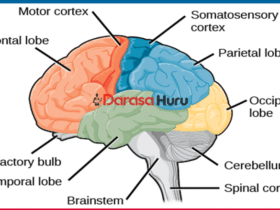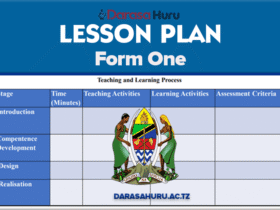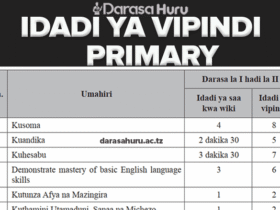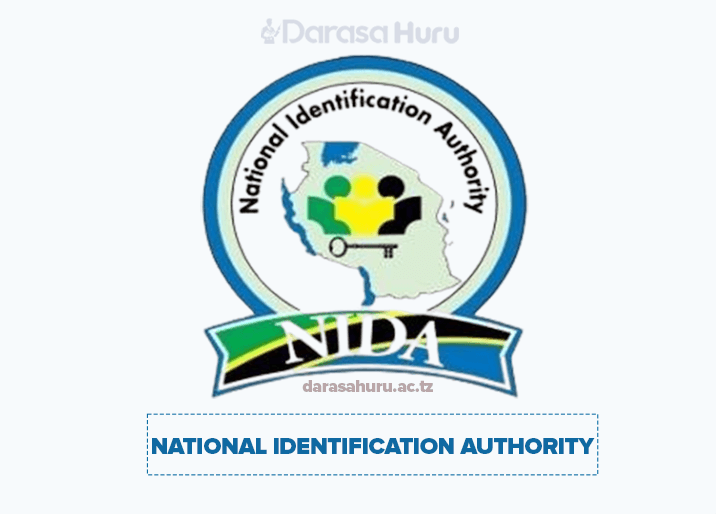ECA Combination Courses and Jobs You Can Do After Graduation
The ECA combination integrates three core subjects: Economics, Commerce, and Accountancy. Economics explores how societies allocate resources and make decisions about production, distribution, and consumption.
Commerce focuses on business activities such as buying, selling, and trading goods and services in the market. Accountancy involves recording, analyzing, and interpreting financial information to facilitate decision-making and financial reporting.
By combining these subjects, students gain a holistic understanding of economic principles, business operations, and financial management practices.
ECA stands for Economics-Commerce and Accountancy. It is a pure economy based disciplinary combination that links specific economic fields together thus allowing students to pursue a wide range of careers in monetary systems.
ECA Combination Courses and Jobs You Can Do After Graduation
In this article we explore programmes/courses that a graduate of ECA can take in any field.
A. Fine Arts and Design Course
Bachelor of arts in Fine arts and Design
B. Business and Economics Programmes
Bachelor of science in Business Information and Communication Technology
Bachelor of science in Economics-population and Development
Bachelor of science in Economics-project Planning and Management
Bachelor of science in Information and Communication Technology with Business
Bachelor of science in Data Management
Bachelor of science in Information Technology
Bachelor of science in Information Systems Management
B. Educational Programmes
Bachelor degree in business studies with education
Bachelor of commerce with education
Bachelor of education in Mathematics
Bachelor of arts with education(Chinese and English)
C. Social Science and Humanities Courses
Bachelor of arts in Anthropology
Bachelor of arts in Project Planning, Management and Community Development
Bachelor of arts in economics and sociology
Bachelor degree in Records, Archives and Information Management
D. Land Planning and Management
Bachelor of science in Land Management and Valuation
Bachelor of science in Regional Development Planning
Bachelor of science in Real Estate, Finance and Investment
Bachelor of science in Urban and Regional Planning
E. Business and Economics Programmes
Bachelor of arts in Economics and Applied Statistics
Bachelor of arts in Cooperative Management and Accounting
Bachelor of arts in Procurement and Supply Management
Bachelor of science in Production and Operations Management
Bachelor of science in Agricultural Economics and Agribusiness
Bachelor of science in Insurance and Risk Management
Bachelor of science in Economics and Finance
Bachelor of science in procurement and supply chain management
Bachelor of science in family and consumer studies
Bachelor of Accounting and Finance in Public Sector
Bachelor of Accounting and Finance in Business Sector
Bachelor of Business Administration in Innovation and Entrepreneurship Management
Bachelor of Procurement and Supply Chain Management
Bachelor of Business Administration in Marketing Management
Bachelor of Science in Economics-Population and Development. Bachelor of Science in Economics-Project Planning and Management
Bachelor of Science in Economics – Economic Policy and Planning
Bachelor of Science in Information and Communication Technology with Business
Bachelor of Accounting and Finance in Business Sector
Bachelor Degree in Accounting Bachelor Degree in Procurement and Logistics Management
Bachelor Degree in Marketing and Public Relations
Bachelor of Commerce in Accounting
Bachelor of commerce in finance
Bachelor of Commerce in Human Resource Management
Bachelor of Commerce in Marketing
Bachelor of Commerce in Tourism Management
Bachelor of Science in Agricultural and Natural Resources Economics and Business
Bachelor of Commerce in Entrepreneurship
Bachelor of Commerce in International Business
Bachelor of Commerce in Banking and Financial Services
Bachelor of Agriculture Investment and Banking
Bachelor of Finance and Banking
Bachelor of Economics and Finance
Bachelor degree in Accounting and Taxation
Bachelor degree in Accounting and Finance
Bachelor degree in Economics Of Development
Bachelor degree in Official Statistics
ECA Combination Courses and Jobs You Can Do After Graduation

ECA Combination Jobs Opportunities after Graduation
Graduates with a background in ECA have diverse career opportunities available to them in Tanzania’s vibrant business environment. Some of the jobs and opportunities include:
1. Economist: Analyzing economic data, conducting research, and providing policy recommendations to government agencies, think tanks, and international organizations.
2. Accountant: Recording financial transactions, preparing financial statements, and providing financial advice and analysis to businesses, government agencies, and non-profit organizations.
3. Financial Analyst: Analyzing financial data, evaluating investment opportunities, and providing recommendations to investors, corporations, and financial institutions.
4. Business Manager: Overseeing business operations, setting strategic goals, and making decisions to ensure the efficient and profitable functioning of organizations.
5. Marketing Manager: Developing marketing strategies, managing promotional campaigns, and analyzing market trends to attract customers and increase sales.
6. Human Resource Manager: Recruiting, training, and managing employees, handling employee relations issues, and ensuring compliance with labor laws and regulations.
7. Tax Consultant: Advising clients on tax planning strategies, preparing tax returns, and representing clients in tax audits and disputes with tax authorities.
8. Entrepreneur: Starting and managing a business venture, identifying market opportunities, securing funding, and navigating challenges to achieve business success.
9. Financial Planner: Helping individuals and businesses develop financial goals, create budgets, and make investment decisions to achieve financial security and wealth accumulation.
10. Auditor: Reviewing financial records, evaluating internal controls, and providing assurance on the accuracy and reliability of financial information to stakeholders.
11. Investment Banker: Advising companies on mergers and acquisitions, raising capital through stock offerings, and structuring financial transactions to meet clients’ strategic objectives.
12. Management Consultant: Providing advice and expertise to businesses on improving performance, streamlining operations, and implementing organizational change initiatives.
13. Insurance Underwriter: Assessing risks, determining insurance coverage, and setting premiums for insurance policies based on risk analysis and actuarial principles.
14. Supply Chain Manager: Managing the flow of goods and services from suppliers to customers, optimizing inventory levels, and minimizing costs while meeting customer demand.
15. Corporate Governance Specialist: Ensuring compliance with corporate governance principles and regulations, implementing best practices, and fostering ethical conduct and accountability within organizations.





































Leave a Reply